Shuo Wan
How global observation works in Federated Learning: Integrating vertical training into Horizontal Federated Learning
Dec 10, 2021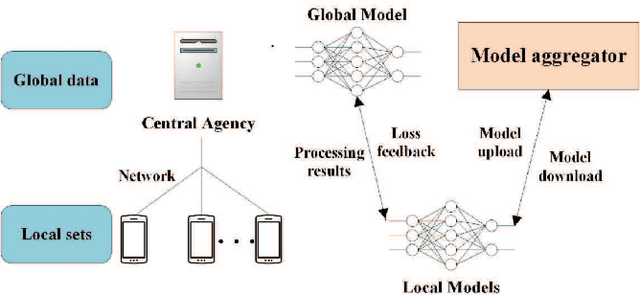
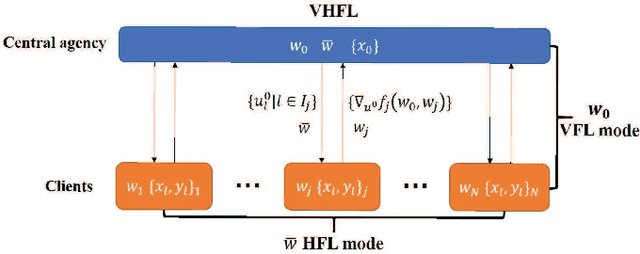

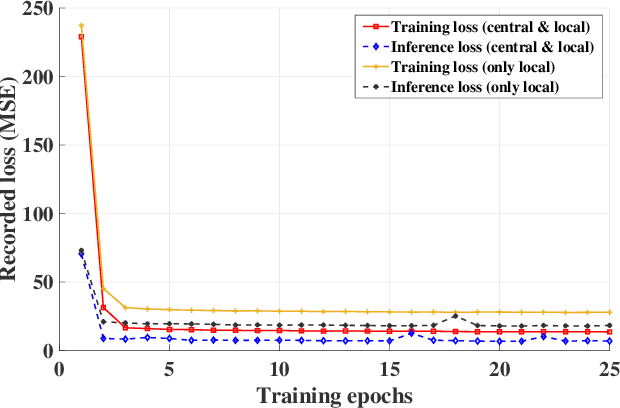
Abstract:Federated learning (FL) has recently emerged as a transformative paradigm that jointly train a model with distributed data sets in IoT while avoiding the need for central data collection. Due to the limited observation range, such data sets can only reflect local information, which limits the quality of trained models. In practice, the global information and local observations would require a joint consideration for learning to make a reasonable policy. However, in horizontal FL, the central agency only acts as a model aggregator without utilizing its global observation to further improve the model. This could significantly degrade the performance in some missions such as traffic flow prediction in network systems, where the global information may enhance the accuracy. Meanwhile, the global feature may not be directly transmitted to agents for data security. How to utilize the global observation residing in the central agency while protecting its safety thus rises up as an important problem in FL. In this paper, we develop a vertical-horizontal federated learning (VHFL) process, where the global feature is shared with the agents in a procedure similar to that of vertical FL without any extra communication rounds. By considering the delay and packet loss, we will analyze VHFL convergence and validate its performance by experiments. It is shown that the proposed VHFL could enhance the accuracy compared with horizontal FL while still protecting the security of global data.
Convergence Analysis and System Design for Federated Learning over Wireless Networks
Apr 30, 2021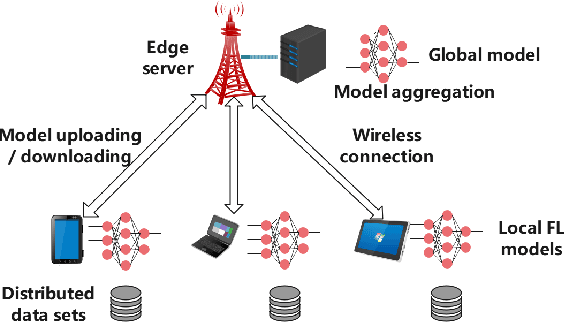
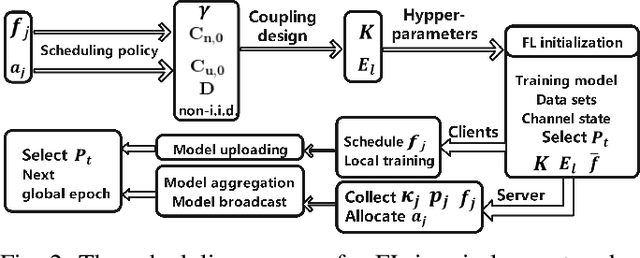

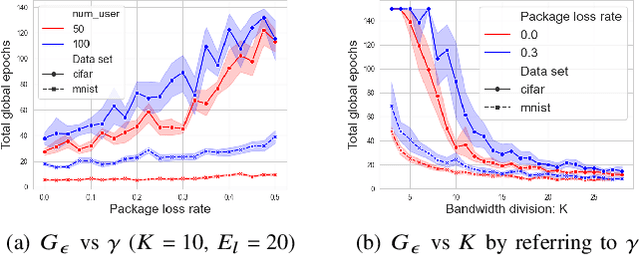
Abstract:Federated learning (FL) has recently emerged as an important and promising learning scheme in IoT, enabling devices to jointly learn a model without sharing their raw data sets. However, as the training data in FL is not collected and stored centrally, FL training requires frequent model exchange, which is largely affected by the wireless communication network. Therein, limited bandwidth and random package loss restrict interactions in training. Meanwhile, the insufficient message synchronization among distributed clients could also affect FL convergence. In this paper, we analyze the convergence rate of FL training considering the joint impact of communication network and training settings. Further by considering the training costs in terms of time and power, the optimal scheduling problems for communication networks are formulated. The developed theoretical results can be used to assist the system parameter selections and explain the principle of how the wireless communication system could influence the distributed training process and network scheduling.
Federated Multi-Agent Actor-Critic Learning for Age Sensitive Mobile Edge Computing
Jan 06, 2021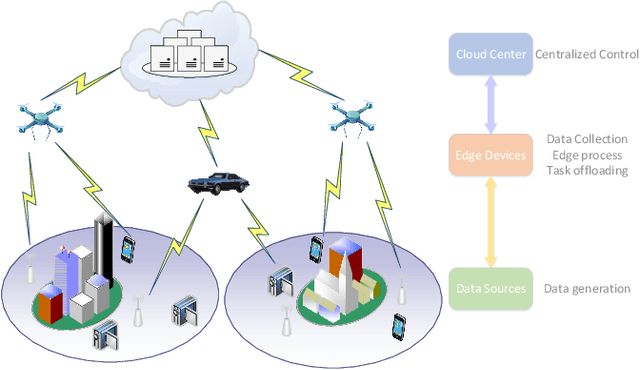
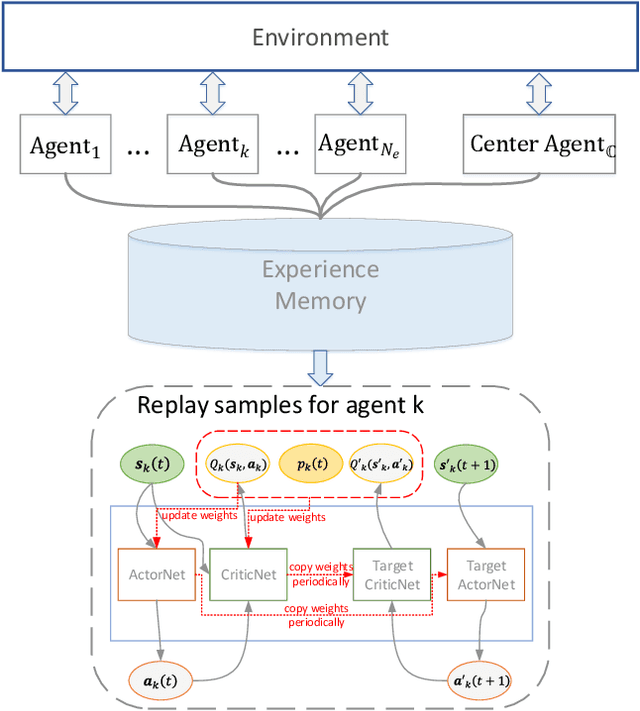
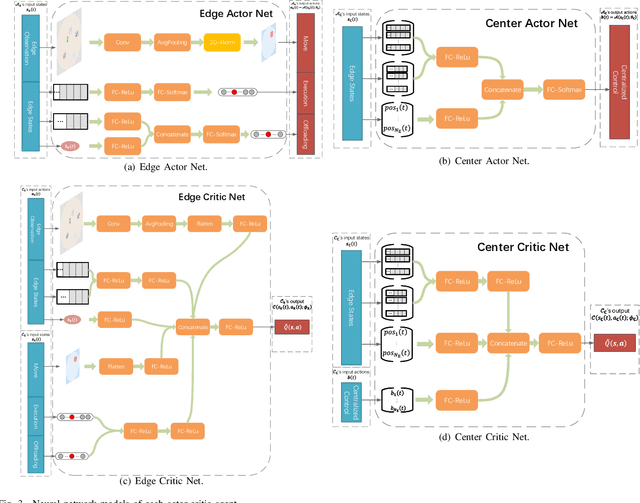
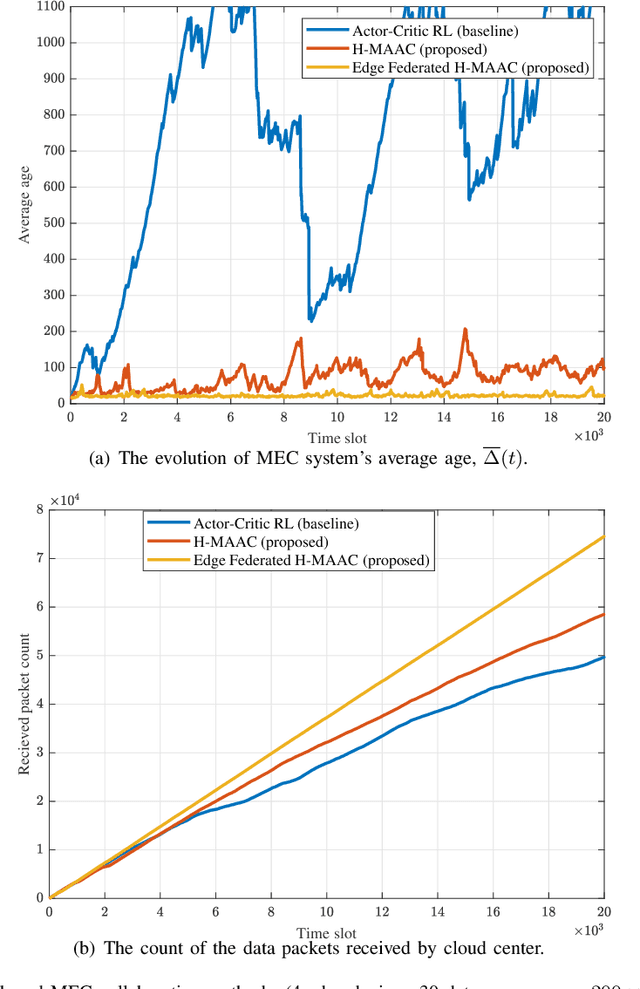
Abstract:As an emerging technique, mobile edge computing (MEC) introduces a new processing scheme for various distributed communication-computing systems such as industrial Internet of Things (IoT), vehicular communication, smart city, etc. In this work, we mainly focus on the timeliness of the MEC systems where the freshness of the data and computation tasks is significant. Firstly, we formulate a kind of age-sensitive MEC models and define the average age of information (AoI) minimization problems of interests. Then, a novel policy based multi-agent deep reinforcement learning (RL) framework, called heterogeneous multi-agent actor critic (H-MAAC), is proposed as a paradigm for joint collaboration in the investigated MEC systems, where edge devices and center controller learn the interactive strategies through their own observations. To improves the system performance, we develop the corresponding online algorithm by introducing an edge federated learning mode into the multi-agent cooperation whose advantages on learning convergence can be guaranteed theoretically. To the best of our knowledge, it's the first joint MEC collaboration algorithm that combines the edge federated mode with the multi-agent actor-critic reinforcement learning. Furthermore, we evaluate the proposed approach and compare it with classical RL based methods. As a result, the proposed framework not only outperforms the baseline on average system age, but also promotes the stability of training process. Besides, the simulation results provide some innovative perspectives for the system design under the edge federated collaboration.
Towards Big data processing in IoT: network management for online edge data processing
May 05, 2019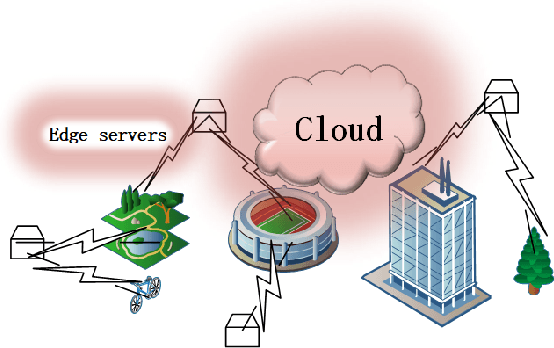
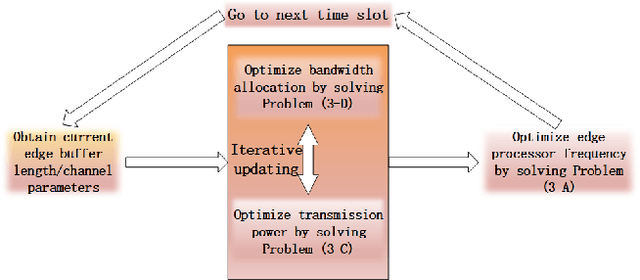
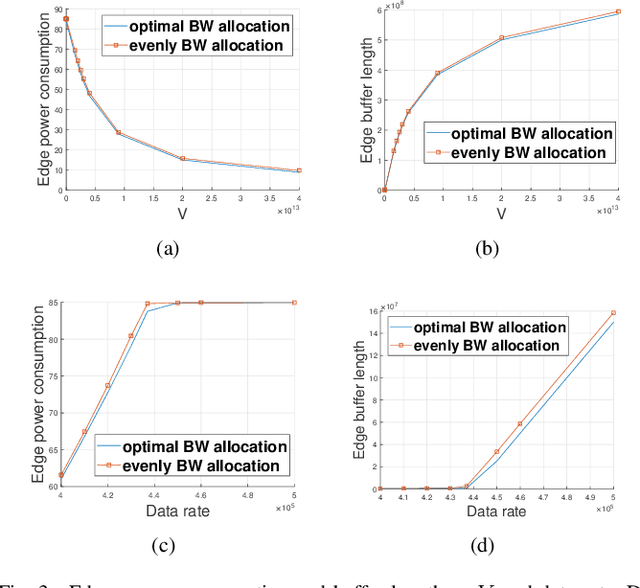
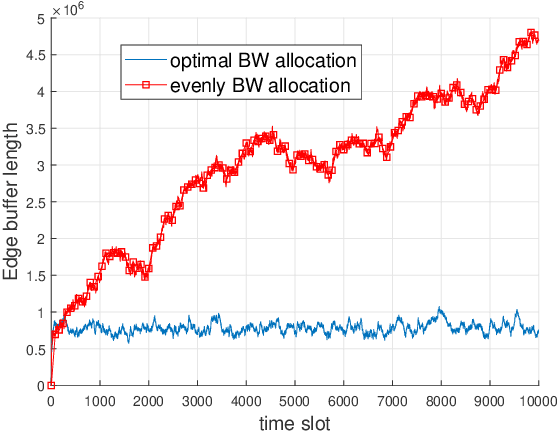
Abstract:Heavy data load and wide cover range have always been crucial problems for internet of things (IoT). However, in mobile-edge computing (MEC) network, the huge data can be partly processed at the edge. In this paper, a MEC-based big data analysis network is discussed. The raw data generated by distributed network terminals are collected and processed by edge servers. The edge servers split out a large sum of redundant data and transmit extracted information to the center cloud for further analysis. However, for consideration of limited edge computation ability, part of the raw data in huge data sources may be directly transmitted to the cloud. To manage limited resources online, we propose an algorithm based on Lyapunov optimization to jointly optimize the policy of edge processor frequency, transmission power and bandwidth allocation. The algorithm aims at stabilizing data processing delay and saving energy without knowing probability distributions of data sources. The proposed network management algorithm may contribute to big data processing in future IoT.
Semi-centralized control for multi-robot formation and theoretical lower bound
Sep 12, 2017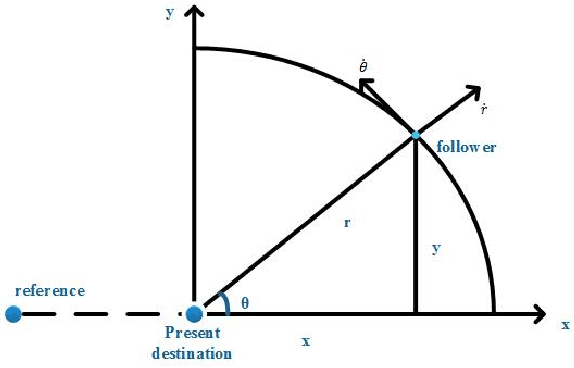


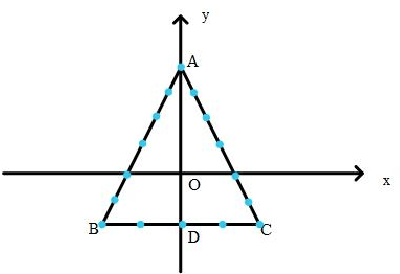
Abstract:Multi-robot formation control enables robots to cooperate as a working group in completing complex tasks, which has been widely used in both civilian and military scenarios. Before moving to reach a given formation, each robot should choose a position from the formation so that the whole system cost is minimized. To solve the problem, we formulate an optimization problem in terms of the total moving distance and give a solution by the Hungarian method. To analyze the deviation of the achieved formation from the ideal one, we obtain the lower bound of formation bias with respect to system's parameters based on notions in information theory. As an extension, we discuss methods of transformation between different formations. Some theoretical results are obtained to give a guidance of the system design.
 Add to Chrome
Add to Chrome Add to Firefox
Add to Firefox Add to Edge
Add to Edge